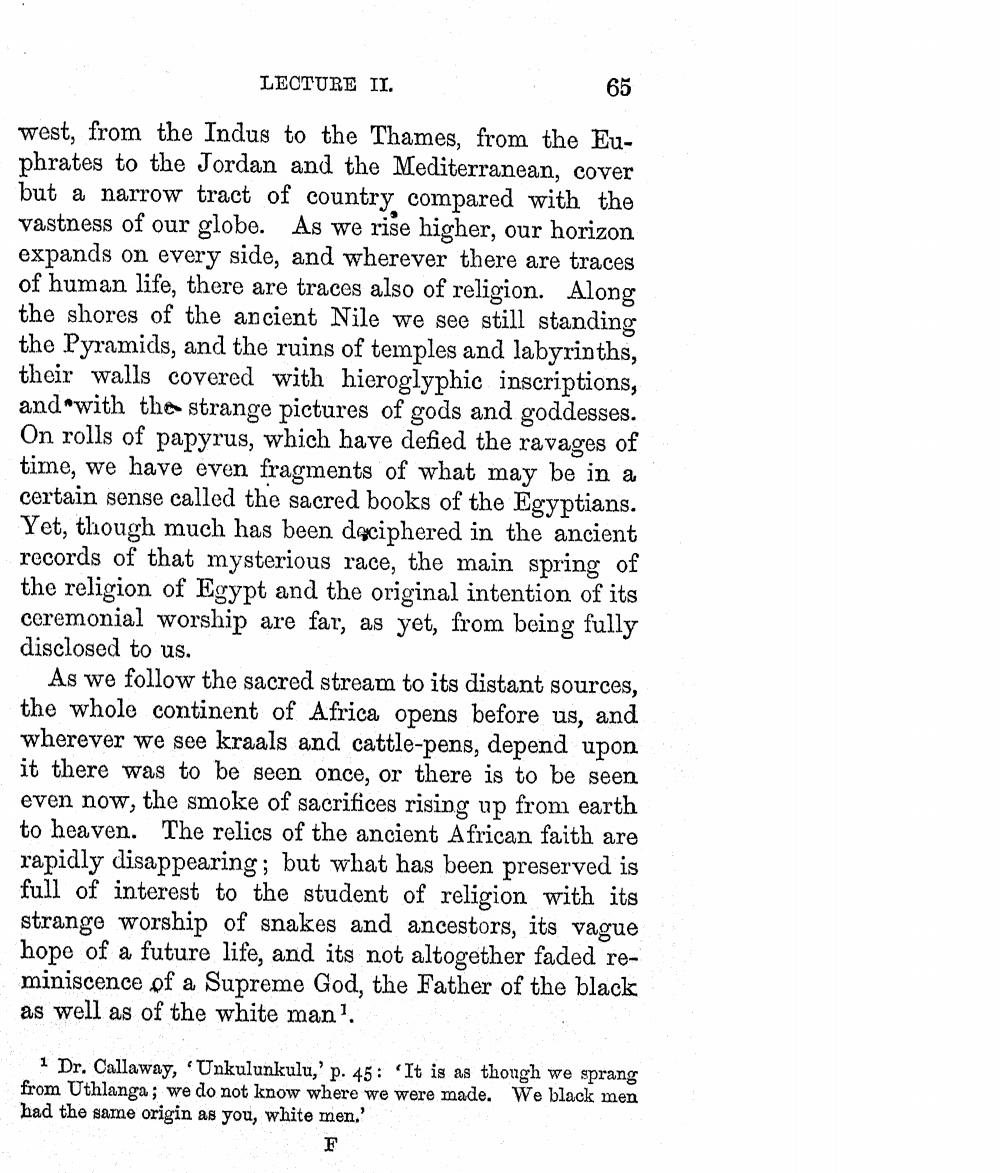________________
LECTURE II.
65
west, from the Indus to the Thames, from the Euphrates to the Jordan and the Mediterranean, cover but a narrow tract of country compared with the vastness of our globe. As we rise higher, our horizon expands on every side, and wherever there are traces of human life, there are traces also of religion. Along the shores of the ancient Nile we see still standing the Pyramids, and the ruins of temples and labyrinths, their walls covered with hieroglyphic inscriptions, and with the strange pictures of gods and goddesses. On rolls of papyrus, which have defied the ravages of time, we have even fragments of what may be in a certain sense called the sacred books of the Egyptians. Yet, though much has been deciphered in the ancient records of that mysterious race, the main spring of the religion of Egypt and the original intention of its ceremonial worship are far, as yet, from being fully disclosed to us.
As we follow the sacred stream to its distant sources, the whole continent of Africa opens before us, and wherever we see kraals and cattle-pens, depend upon it there was to be seen once, or there is to be seen even now, the smoke of sacrifices rising up from earth to heaven. The relics of the ancient African faith are rapidly disappearing; but what has been preserved is full of interest to the student of religion with its strange worship of snakes and ancestors, its vague hope of a future life, and its not altogether faded reminiscence of a Supreme God, the Father of the black as well as of the white man?
1 Dr. Callaway, 'Unkulunkulu,' p. 45: 'It is as though we sprang from Uthlanga; we do not know where we were made. We black men had the same origin as you, white men.'
origin as you, white where we were mas though we gps




